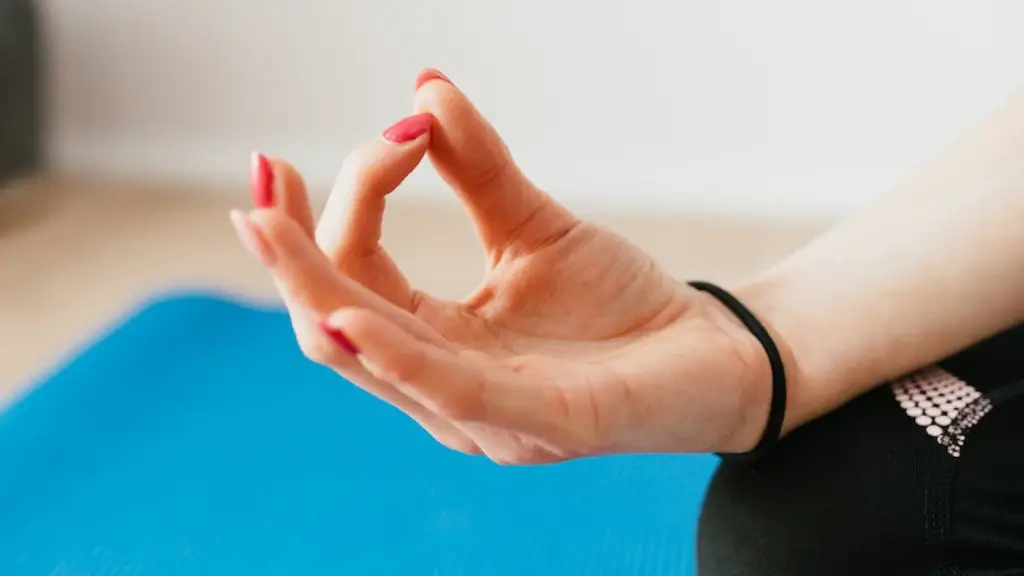There are many benefits to working out, and one of them is reducing stress. Exercise releases endorphins, which have mood-boosting and pain-relieving effects. In addition, it can help to take your mind off of whatever is causing your stress. Working out is a great way to reduce stress and improve your overall health.
There is no one-size-fits-all answer to this question, as the impact of exercise on stress levels varies from person to person. However, many people find that regular exercise can help to reduce stress levels, and that working out can be a healthy way to cope with stress.
What is the best exercise to relieve stress?
There are many different exercises that can help to bust stress, but some are more effective than others. Brisk walking, jogging, or running are all great options for getting your heart rate up and releasing some endorphins. Swimming is also a great way to relax and de-stress, while cycling and dancing are both great forms of cardio that can also be lots of fun. Boxing and HIIT workouts are also great for relieving stress, but they may be more intense than some people are looking for. Ultimately, the best exercise for busting stress is the one that you enjoy and can stick with consistently.
Advertisement
There are many ways to relieve stress and promote relaxation. Some people find that physical activity can help to reduce stress levels. Others may find that meditation or journaling can be helpful.
Yoga, laughter, and connecting with others are also great ways to promote relaxation. Be sure to get enough sleep and to assert yourself in order to keep stress levels down.
What are 3 coping strategies for stress
Chronic stress can be a difficult thing to deal with. Here are 10 ways that you can help cope with chronic stress:
1. Re-balance Work and Home- Make sure to schedule in time for both work and home life. Having a balance can help reduce stress.
2. Build in Regular Exercise- Exercise is a great way to help reduce stress. Try to schedule in time for at least 30 minutes of exercise every day.
3. Eat Well and Limit Alcohol and Stimulants- Eating a healthy diet and limiting alcohol and stimulants can help improve your overall health and reduce stress.
4. Connect with Supportive People- Talking to friends and family can help reduce stress. Talking to people who understand what you’re going through can be helpful.
5. Carve out Hobby Time- Doing things you enjoy can help take your mind off of stress. Make sure to schedule in time for your hobbies.
6. Practice Meditation, Stress Reduction or Yoga- Meditation, stress reduction, and yoga are all great ways to help reduce stress. Try to do one of these activities for at least 10 minutes every day.
7. Sleep Enough- Getting enough sleep is important for overall health and can help reduce stress. Make
Regular exercise releases endorphins, which are natural painkillers. These endorphins also act as natural antidepressants. In addition, regular exercise can also help to release other natural brain chemicals, such as endogenous cannabinoids, that can improve your sense of wellbeing.
How long does it take for exercise to help with anxiety?
Regular participation in aerobic exercise has many benefits, one of which is reducing overall levels of tension. Just five minutes of aerobic exercise can begin to stimulate anti-anxiety effects, making it a great way to improve your mood and reduce stress. Additionally, regular aerobic exercise can improve sleep quality and help to increase self-esteem. So if you’re looking for ways to feel better both mentally and physically, consider adding some aerobic exercise to your routine!
The 3-3-3 rule is a great way to stay present and focused in the moment. By looking around you and identifying three things you see, you are engaging your senses and paying attention to your surroundings. Similarly, by identifying three sounds you hear, you are furthering your focus on the present moment. And finally, by moving three parts of your body, you are keeping your body active and engaged. By following the 3-3-3 rule, you can ensure that you are staying present, focused, and engaged in the moment.
Which food reduce stress?
There are many foods that can help alleviate stress. Some examples include oatmeal, asparagus, salmon, tuna, berries, oysters, dark chocolate, and chamomile tea. Try incorporating some of these foods into your diet to help relieve stress naturally.
Magnesium and zinc are two minerals that have been linked to lowered anxiety levels. Foods that are naturally rich in these minerals, such as leafy greens, legumes, nuts, seeds, and whole grains, may help a person to feel calmer. In addition, foods that are rich in zinc, such as oysters, cashews, liver, beef, and egg yolks, have also been linked to lowered anxiety.
What are 5 emotional signs of stress
It’s important to be aware of the warning signs of stress in adults, as they can often be indicative of a more serious problem. Crying spells or bursts of anger, difficulty eating, losing interest in daily activities, and increasing physical distress symptoms such as headaches or stomach pains are all potential warning signs of stress. If you or someone you know is experiencing any of these symptoms, it’s important to seek help from a professional to see if there is any underlying cause that needs to be addressed.
When you’re under stress, you may feel irritable, angry, impatient, or wound up. You may feel over-burdened or overwhelmed. You may be anxious, nervous, or afraid. Your thoughts may be racing, and you may not be able to switch off. You may not be able to enjoy yourself. You may feel depressed. You may lose your sense of humour.
What is the difference between stress and anxiety?
When we experience stress, our bodies go into a “fight or flight” mode. This results in the release of stress hormones, such as adrenaline and cortisol. These hormones can cause physical symptoms, such as increased heart rate and blood pressure, as well as mental symptoms, such as irritability, anxiety, and difficulty concentrating. In some cases, stress can even lead to more serious health problems, such as heart disease, ulcers, and depression.
Anxiety is a bit different from stress. While stress is caused by an external factor, such as a deadline at work or an upcoming exam, anxiety is often caused by our own thoughts. We may worry about things that haven’t even happened yet, or we may dwell on negative outcomes that are unlikely to occur. This can result in physical symptoms, such as increased heart rate and muscle tension, as well as mental symptoms, such as difficulty concentrating and insomnia.
Aerobic exercise, like running, can help your brain recover from mental exhaustion or burnout, according to new research. This may be because this type of exercise provides recovery for your cognitive processes and nervous system so they can function more effectively.
What are 10 emotional benefits to exercising
Exercise has been shown to have numerous psychological benefits, including improved mood, reduced stress, and increased self-esteem. exercise has also been linked to improved body image and increased satisfaction with oneself. In addition, exercise has been shown to increase feelings of energy and confidence in physical abilities.
It is well known that regular exercise can have a positive impact on physical health, but it is also increasingly being recognized for its benefits on mental health as well. Exercise has been shown to be effective in treating and preventing depression, anxiety, and attention-deficit/hyperactivity disorder (ADHD), as well as relieving stress, improving memory, and helping to sleep better. Furthermore, exercise can also boost overall mood. Therefore, even if you are not a “fitness fanatic,” you can still experience many benefits by incorporating some form of regular exercise into your life.
Can exercise heal anxiety?
Regular exercise can be a great way to improve your mood and self-confidence. It can also help to reduce symptoms of mild depression and anxiety. Exercise can also help you to relax and improve your sleep.
Exercise has long been known to have mood-boosting benefits, but it was usually thought of as a way to prevent depression, rather than treat it. However, new research suggests that exercise may be just as effective as antidepressants in some cases.
The study, which was published in the journal JAMA Psychiatry, looked at the benefits of exercise in people with major depression. The researchers found that, in some cases, exercise was just as effective as antidepressant medication at improving depressive symptoms.
Interestingly, the study also found that the benefits of exercise were most pronounced in people who were least likely to respond to medication. This suggests that exercise may be a particularly good treatment option for people who don’t respond well to standard antidepressant medication.
If you’re struggling with depression, talk to your doctor about whether exercise might be a good treatment option for you.
Final Words
There is no one-size-fits-all answer to this question, as the extent to which working out reduces stress may vary from person to person. However, many people find that regular exercise can help to lessen feelings of stress and tension, and can also boost mood and improve overall well-being. Therefore, if you are looking for ways to reduce stress, working out may be worth a try.
Working out is a great way to reduce stress. It releases endorphins, which have mood-boosting effects. It also helps to clear your mind and give you a sense of accomplishment.





